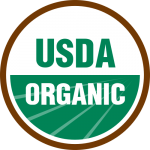 OraLabs is proud to introduce our new Lip Organics line Lip Balm. For over a year, we have worked ardently with the USDA and CCOF to achieve our organic certification. Our facility, as well as our Lip Organics, have been certified in the process.
OraLabs is proud to introduce our new Lip Organics line Lip Balm. For over a year, we have worked ardently with the USDA and CCOF to achieve our organic certification. Our facility, as well as our Lip Organics, have been certified in the process.
What Does That Mean?
‘Organic’ refers to how food, or related products, are produced. By eliminating the use of any and all synthetics in the ingredients and production process, we are able to create a truly ‘green’ lip balm
Is It Organic or Natural?
The term “organic” can only be used on products that are grown and produced without pesticides, and other harmful chemicals. Products that host the USDA Organic Seal are produced under the high standards set forth by the US Dept. of Agriculture. There is no legal definition of what the term “natural” means. Natural foods can include organic foods, but not all natural foods are organic. Look for products with the USDA Organic seal and you’ll be making the right choice for your health and the environment.
Then What’s In It?
- Cocos Nucifera (Coconut) Oil*
- Beeswax*
- Ricinus Communis (Castor) Seed Oil*
- Helianthus Annus (Sunflowe) Seed Oil*
- Flavor
- Tocopherol (Vitamin E)
Our Lip Organics line include the following ingredients:
*Organically Produced
Why Go Green?
Organic food tastes amazing! Organic food tastes better than conventional because it’s not coated with chemical residues from pesticides and fertilizers. Organic food, which often times is synonymous with local food, optimizes time by allowing food to grow at a natural pace in the garden or field. This coupled with a shorter farm to market distance ratio than means fresher food as well.
Organic food is healthy! Organic food on average contains higher Vitamin C (powerful antioxidant) levels as well as higher levels of calcium, magnesium, iron, and chromium. The bioavailability of nutrients in organic foods is at a greater level than that of conventional.
Organics are better for the environment! Organic production systems do not allow the use of chemical fertilizers which pollute our rivers and streams. Instead, organic production systems utilize composted manure and leguminous cover crops in rotation with cash crops to naturally feed nitrogen to the soil.
Organics support communities! For small farmers, organic agriculture has offered an alternative market where organically grown food commands a fair price. Workers on organic farms have reduced exposure to harsh cancer causing chemicals.